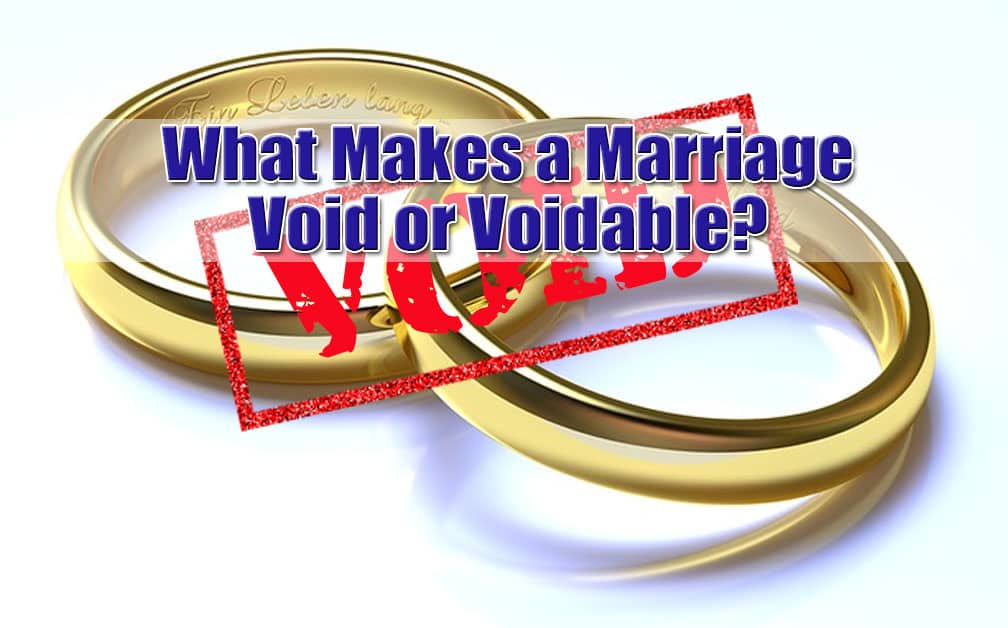
The easiest way to remember the difference between the two is that a Void Marriage is invalid from the beginning – it is treated as if it never existed, while a Voidable Marriage can be invalidated by either party if they so choose.
Void marriages can never be confirmed as legal and may be attacked by anyone. Because they are treated as if they never existed, a Court Order ending the marriage is not needed. Typically, there are no defenses to a Void marriage.
Voidable marriages need judicial action in order to nullify them and they are valid until such time. Therefore, if neither party takes judicial action to end the marriage, the marriage will continue as valid. There is an exception to the requirement that the parties must take judicial action in that with underage marriages a parent or guardian may take action to nullify the marriage.
The most common types of void marriages are:
The most common type of voidable marriage involves a minor. If the parties are under the age of 14, the marriage is prohibited. If the parties are under the age of 16, a parent or guardian must consent. The parties must also obtain judicial consent if they are under the age of 16. New York State Law states that in order for parties between the ages of 16-18 years to be married, there must be written consent from both parties’ parents and the parties must personally appear before the clerk.
If you have questions regarding Void or Voidable marriages, please call our Family Law firm at 631-923-1910 to set up a free consultation with one of our experienced attorneys.
For more information about Divorce on Long Island, visit this page: Divorce Lawyers Answer Questions about Long Island Divorce
Our 41-page “Guide to New York Divorce: What You Need to Know Before Hiring a Divorce Lawyer in New York” written by an experienced family law lawyer, Long Island’s Robert E. Hornberger, Esq., provides you with real information on the divorce process and the laws it rests upon in the state of New York. This book will help give you a solid foundation upon which you can begin the process of making your family’s, life better.